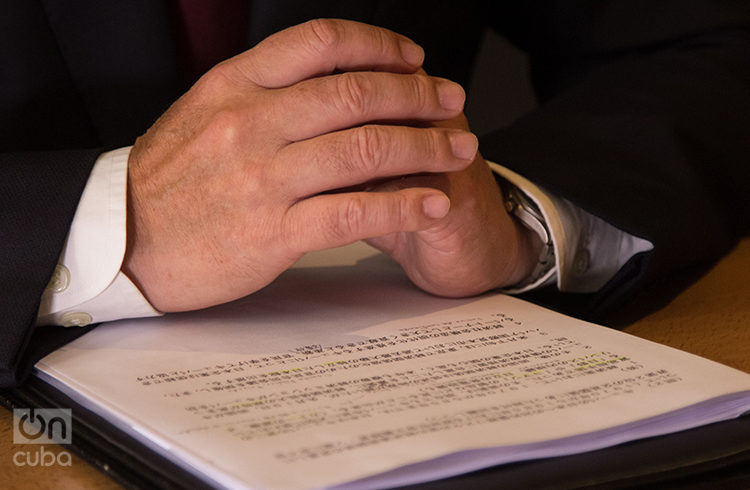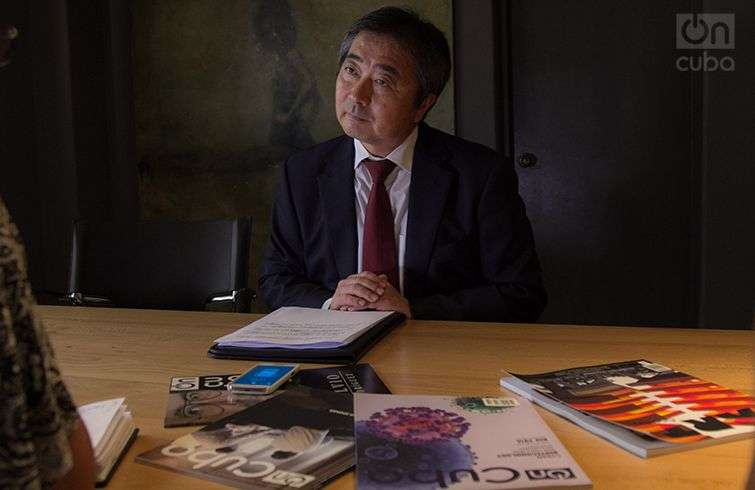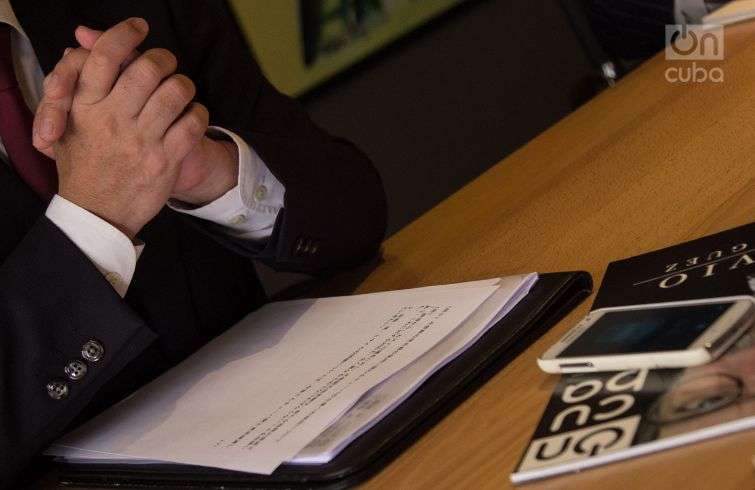Just a few weeks ago I met the ambassador of Japan to Cuba, Masaru Watanabe. We wanted to talk to him and interview him, motivated by the recent visit to the island of Japanese Prime Minister Shinzo Abe.
The OnCuba writing staff was very interested in getting to know details about the visit. I, however, was encouraged by a much more personal curiosity.
The ambassador kindly accepted our invitation to visit our office in Havana. After touring our venue, we sat down in the conference room. He gave us more than an hour of interview and answered all the questions. He felt comfortable, pleased about the results of the top-level visit to Cuba, and committed to these new airs of cooperation, collaboration and economic ties of mutual interest.
While I was hearing him talk, I noticed he was a very peaceful, tranquil and secure man; he sealed each answer with a smile. He seemed to not bare any hate or resentments in his heart, or feel in a state of emergency or paranoia….
However, Japan is located in a zone of conflicts, it is a country surrounded by two regimes that challenge their neighbors whenever they feel like it and destabilize the region. It was in the news (and the ambassador confirmed it) that the prime minister’s agenda included a petition to the Cuban government to mediate in the conflict with the North Korean leader: the controversial and euphoric Kim Jong Un.
At the end of the interview, I interrupted the smile after his last answer and said to him:
“Mr. Ambassador, thank you for so much of your time and for your visit. As you already know, I am not a journalist but I would like to ask you a question.”
“Yes, of course,” he said in a friendly way.
“As you already said, Cuba and Japan have many similarities: both are islands or groups of islands, they are both affected by similar natural disasters, etc. But I see other, deeper resemblances from which we Cubans could learn.
“Despite the historical and contextual differences, Japan and Cuba have had conflicts with the United States. Japan’s was a very sad episode, of war and hundreds of thousands of deaths. Moreover, Japan had the terrible experience of the two atomic bombs in Hiroshima and Nagasaki. It went through a military occupation and, like Cuba, it still as U.S. naval base in a part of its territory. Today in Cuba, despite the ongoing process of the reestablishment of diplomatic relations, there are those who are very worried, others seem as if they are seeking to withdraw and try to hinder this process promoted by Raúl Castro and Barack Obama. And there are others still living in the past, poisoned by hate and rancor.”
At present, Japan is a prosperous country, an important partner and ally of its former war enemy: the United States. I asked Ambassador Watanabe how they were able to achieve this. How were the Japanese and the government of Japan able to overcome those traumas? The ambassador sighed and immediately answered.
“It wasn’t easy. We were forced to place the wellbeing and the interests of the Japanese people over our personal pain.”
He was silent for a few seconds as if searching for a reaction in our eyes. And he smiled.












